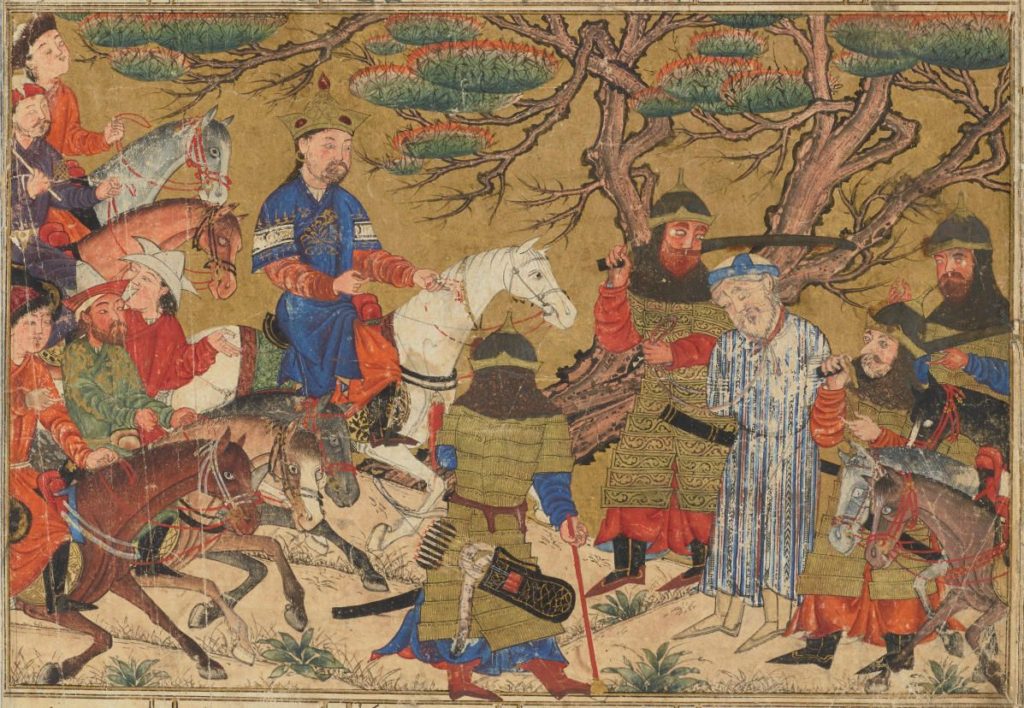
If personality is the totality of an individual’s instincts, experience, emotions, and thoughts – which is by all means debatable – then what can culture be but shared personality?
Another possible definition of personality could be that it consists of an individual’s perceptual filters, habitual behavior reinforced by myelination of neural pathways, memory, and reflections upon all of these. Culture, too, has perceptual filters – biases – and traditions, which is what we call habits at the social scale; also memory and reflection in the form of recorded history and art.

However exactly we choose to define personality and culture, the two will be conceptually identical, allowing for the difference in scale. To the extent that an individual assimilates a culture, that individual becomes somewhat less individual.
The danger of culture is forgetting that it, too, is only an artificial construct. When we treat cultural elements as if they had any intrinsic reality, we relinquish our autonomy just a little. American consumer culture – predictably – offers such an extensive and varied selection of prefabricated patterns that it is a common thing to encounter people who, although blessed with the usual human faculties of perception and reason, have outsourced their entire lives to culture, moving from one set of prefabricated activities and emotions to another without ever having an original thought or making a truly autonomous decision. They have fallen into a trap of their own convenience, and are likely to remain there as long as it is comfortable.
Culture offers an opportunity to outsource parts of our personalities, allowing a shared set of cultural elements to provide a common ground for us to interact with each other. Without a certain amount of common culture, there can be no society. This is not to say that common culture must be uniform or static; culture evolves naturally and continuously through technological development, migration, and human creativity. To fixate on a particular cultural pattern from one point in time and space is not only a losing proposition but a denial of reality.
Another problem with culture is that it is not necessarily equitably derived: it is rare that all members of any given society receive equitable representation, agency, and opportunity. It is said that the winners write the history books. So it is also with culture: more often imposed upon the victims of injustice than created by common participation.
The assumption that shared culture is what keeps people together in a society begs the question of how well – if at all – culture expresses the will of its members. In a society with highly inequitable outcomes, it is important to challenge the function of cultural elements. What is the reason for any given cultural observance, common value, or shared belief? What purpose does it serve, and who benefits?
Examining the culture in which we live through this kind of questioning may yield some startling conclusions, if we are honest and fearless. Those conclusions are the basis for positive change.
If our purpose as human beings is to develop as individuals to the highest degree possible, what use to us is culture? Elements of culture that restrict its members or deny them the opportunity for self-definition and self-realization should be questioned. Do these elements serve to protect the common good and the rights of every human being – or do they support structures of injustice?
As individuals, it is of the utmost importance to carefully analyze our cultural behaviors, identifying those that may be hijacking our energy in an inequitable exchange of values. Inequities of wealth, profit-sharing, compensation for labor, access to basic needs, among others, are worse in 2022 than in the Gilded Age, so often cited as a shameful example of grotesque wealth for the few built on the foundation of crushing poverty for the many. A society with increasing levels of inequity cannot be said to prioritize the common good or provide for fair exchange of values; the mechanism has been broken or corrupted, and must be changed in order to restore proper function.
What can we, as individuals, do? We can speak plainly of what we observe, as publicly as possible, arguing our points with reason rather than from instinct. We can create culture by our common conversation, and we can direct it and cultivate it according to our common purpose. When a decisive majority acts with the good of all at heart, there is unlimited potential for cultural transformation. It may be up to each generation to face a particular cultural challenge, the success or failure of which they pass on to their children. The challenge of my generation, it seems to me, is whether our children will inherit a society that has space for each individual to thrive on their own terms. I fervently hope that we will rise to this challenge, leaving a world to the next generation that is more equitable, happier, freer, more tolerant, more colorful and diverse than the one we inherited in our time.

We escape the trap of culture by creating a culture that fosters individuality, supported by community. The good of every one – not just the good of a fortunate few, or even of a majority – must be the social purpose. That would be patriotic pride: to truthfully say that in my country, there is no child homeless or hungry; there is no elder who suffers and is without medical care; there is no youth whose dreams are limited by poverty or bigotry; there is no parent whose child lacks for basic needs, regardless of circumstance; there is no stranger who comes to our borders in desperate need and is turned away; such a country would be the best upon the Earth and deserving of pride.
May our children’s children inherit that country.